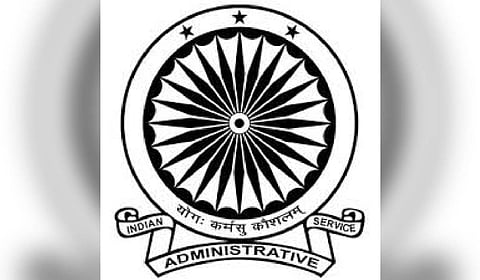

THIRUVANANTHAPURAM: With the election to the IAS Officers' Association around the corner, conferred officers appear to be a discontented group. The association, which boasts a cadre strength of 165 officials, has faced criticism for not providing proper accommodation or adequate representation to conferred officers.
This neglected segment, comprising 55 officials, often avoids attending association meetings as they are typically relegated to less significant roles, such as joint secretary or other minor positions within the executive committee.
Out of the 165 officials in the Kerala cadre bureaucratic setup, 110 are regular recruits through direct recruitment, while the remaining 55 are conferred IAS officers. These individuals were promoted from positions such as deputy collector or from the Kerala Administrative Service.
A conferred IAS official, speaking on condition of anonymity, expressed long-standing frustration over discrimination.
“We hardly attend any programmes of the IAS Officers’ Association. The association provides some random posts to us in the executive committee, conveying the message that we are viewed as outcasts. There should be some change in the IAS Officers’ Association,” said the official.
However, another conferred IAS officer offered a different perspective, noting that only a few have excelled in their roles and, as a result, received key assignments.
“If an official acts timidly, then he or she may not get the opportunity to hold key posts. Alternatively, they have to be in the good books of the government, whoever is in power. There has always been a step-motherly attitude towards us. We normally get a berth in the executive committee and hardly any key posts,” said a senior conferred IAS officer.
Some conferred IAS officials have indeed made a mark, excelling in their responsibilities and earning a reputation for their contributions.
Noteworthy examples include former Additional Chief Secretaries T. N. Jayachandran and Sajan Peter, as well as former Principal Secretaries Lida Jacob and B. Sivasankar.
The latter, however, became a controversial figure linked to the Chief Minister’s Office and was implicated in the infamous ₹100 crore gold smuggling case.
Lida Jacob, a conferred IAS officer from the 1983 batch who retired in 2007, reflected on the past, suggesting that discrimination was not always an issue.
“During my days, a senior IAS official would be nominated as the association president. I can say there was no discrimination between the direct recruits and conferred IAS officers in those days. Then he or she would be asked to take up the role of president and act as a crucial official,” said Jacob, who started her career as a deputy collector in Alappuzha in 1983.
The election to the IAS Officers' Association was scheduled for February this year. B. Ashok, the incumbent president and Agriculture Production Commissioner, stepped down last month, advising the need for an election. According to Ashok, it is the responsibility of the 10-member executive committee to organise the election, though he remains in office until then.
“I requested the Election Commission to intervene, accept my resignation, and form an ad hoc committee to conduct the election. I have served two terms and have been in office since 2022, emphasising that periodic elections must be held. They are in the process. As far as I know, there have always been 2–3 office bearers who were promoted officers. Anyone is free to contest in the IAS Officers’ Association,” said Ashok.
The election has been delayed due to several reasons, including the Wayanad twin landslides and the Assembly elections in Haryana and Jammu and Kashmir, which required the deployment of numerous bureaucrats as observers.